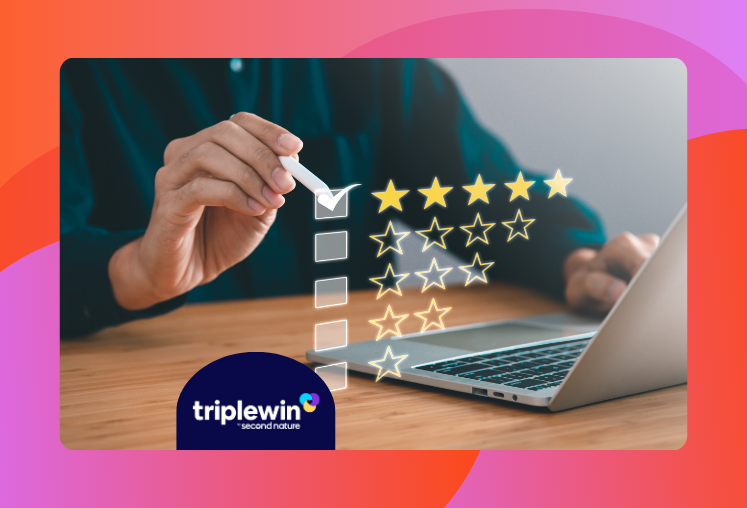Adam Willis is the President and Principal Broker of Nestwell Property Management, serving Utah's Salt Lake Valley. He has over twenty years of leadership and real estate experience, and has spoken at multiple NARPM conferences and other industry events. Adam is a Second Nature Triple Win Mentor.

Taking a Human-First Approach to Resident Policies
My philosophy is that, when building a business, your core beliefs and core values should drive policy. From there, policy drives process and process drives action, and at the end of the day, each action is humans working with humans. Most often, those humans are our residents. Basically, the work we do with our residents each day should always reflect our core values, and at Nestwell, a big part of that is injecting kindness and humanity at every opportunity. So we sat down and thought about how we can build our policies to be more human. Creating our RBP About eight years ago, we started developing our resident benefits package in-house. As a part of that, we started formalizing a lot of our policies in a way that was more transparent to our residents and offered real value. We didn’t want to have an RBP that was full of fluff; we wanted it to be meaningful. We wanted to create policies that were human, understanding, and accommodating. We wanted to show that we recognize… sometimes life gets in the way and mistakes happen. Figuring out how to formalize that in writing was tough; we didn’t want our generosity to be taken advantage of, but we also didn’t want to have to materially change the lease agreement for every resident. That’s where the RBP came in—it gave us a chance to formalize some firm policies while still keeping our lease as it was. Offering late fee forgiveness One of the areas that we wanted to be a little bit more accommodating toward our residents was late fees. Our late fees are pretty hefty, and probably higher than others in our area. But we also understand that stuff happens, whether it’s a job loss, a bank account hack, or even just migrating banks and forgetting to update ACH withdrawal. We wanted to show our humanity a bit and offer that flexibility. Our thought was, if someone misses an on-time rent payment because they’re in the hospital having a baby, we shouldn’t be charging them a late fee, we should be sending them a baby gift. We ultimately decided to introduce a one-time late fee waiver. Rather than charging a fee the first time a payment is late, we want to help our residents get back on track and paying on time. It’s a benefit that’s available to all our residents, and it helps them feel like we’re understanding and flexible. The surprising part is that only about 5% of residents ever reach out for late fee forgiveness, so it isn’t something that’s actually costing us all that much. Walkthrough rescheduling forgiveness Another benefit that we wanted to introduce to increase flexibility was related to our property evaluation walkthroughs. In order to stay on top of property maintenance and satisfy our investors, we conduct walkthroughs quarterly, which we know can feel like a lot to residents. We got some pushback when we initially rolled out the walkthrough schedule, and we found that it can make residents feel a bit micromanaged. In fact, we found that we had residents telling us stories to try to get out of their property evaluations, claiming illness or other things. Because we charge a cancellation fee for these appointments, that was causing more friction and tension with residents. We wanted to allow for some latitude for those residents who had good reason for rescheduling. As part of our RBP, we introduced one-time rescheduling waivers, which allow residents to reschedule an evaluation appointment without penalty. We’ve found that residents really appreciate this flexibility and take advantage of it much more than the late fee waiver, especially during the holidays. It helps us be a little bit more understanding in our processes, and it also decreases the number of last-minute cancellations. Instead, residents are giving the required 24 hour notice to use the waiver, giving us enough time to reorient our team as needed. Earning buy-in from your team These waivers have also helped us get extra buy-in from our team. They serve as an easy way to make our property managers a part of these decisions, and to connect a bit more with their residents. When a resident calls in looking to use one of their waivers in their RBP, it’s the property manager who answers the call. As a result, residents start to see their property managers on a more human level. Rather than being rule enforcers, they’re accommodating, helpful, and understanding. It makes it easier for property managers to own the relationship, but also to minimize the complaints they get and the pushback they get from residents. It’s been a huge boost to our team, who feel more motivated when they know the work they do impacts people emotionally. Final thoughts Infusing humanity into your policies is easier than it might seem, and you can always start small. Yes, there will be times when it gets complicated. There are fair housing and legal considerations that have to be factored in, but we do what we can to make life a little bit easier for our residents without crossing the line. Like I said, processes and actions stem from policies, and those policies stem from core values. We’re all imperfect people, and that means that sometimes we’ll fall short. We’ll develop a policy that doesn’t quite reflect our core values, or a process that doesn’t perfectly reflect the policy. The key is to be on the look out for those shortcomings and willing to jump into action to fix them. When you put humanity into action, you’ll see better business results, more confident team members, and happier residents.
January 6, 2026
Read more



